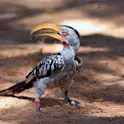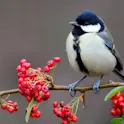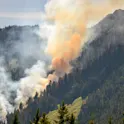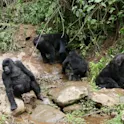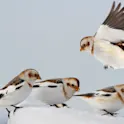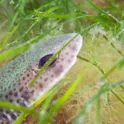Seagrass loss around the UK may be much higher than previously thought
By Suzanna Burgelman, Frontiers science writer Dogfish between seagrass. Image: Frogfish Photography The United Kingdom (UK) could have lost as much as 92% of historic seagrass meadows, a new study shows. These seagrass meadows are an essential part of healthy marine ecosystems, supporting the UK’s fish stocks, and helping to absorb and trap carbon from the atmosphere. The research highlights an urgent need to protect and restore current and degrading seagrass meadows. The loss of seagrass in the waters around the UK is much higher than previously estimated. A new study published in Frontiers in Plant Science concludes that, with high certainty, at least 44% of the UK’s seagrasses have been lost since 1936, of which 39% has been since the 1980s. This study is one of the first of its kind to bring together seagrass data from diverse sources and give a systematic estimate of the current and historic extent of seagrass, as well as seagrass loss in the UK. The study was a collaboration between researchers at University College London, Kings College London, and Swansea University. Read original article Download original article (pdf) Seagrasses as climate change superheroes Nature-based solutions are essential to mitigate the effects of the […]
